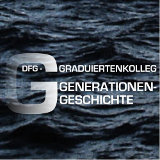Research Profile
The upsurge of "gender studies" has put approaches, methods and results in the social sciences, the humanities and cultural studies on a new footing. In the light of the demographic threat to the "generational contract" and the quick succession of "generational styles" in popular culture another equally fundamental problem is asking for attention:
which role do "generations" play in the making of cultural identity, the succession of styles, the distribution of economic ressources, the orchestration of political conflicts and in the making of historical tradition itself,
how do changing imaginations about subjectivity and transforming pedagogical patterns influence the emergence of generations,
and what can be learned from this for the "generationial sense" of experience and self in modern times?
The graduate programme combines the different fields of expertise which normally deal with "generations" in an isolated manner like in studies of socialization (generational conflict), the welfare state (generational justice), political conflict and revolutions (political generations), literary studies (literary generations), cultural studies (consumer generations) and in historical narratology (generational memory). In bringing these fields together the programme helps to establish "generation studies" as an integral approach in social science and cultural studies. The historicity of these generational issues places the project in the period from the "sea change" in historical thinking in the late 18th century with its revolution in time experience and the second half of the 20th century with its endgame of the political generations connected with War and Revolution. The making of generations is, however, often seen in terms of a particular historical definition of generations (by Karl Mannheim) which turns on a narrow concept of the heroic and tragic self-generation of male youth only. Instead, the programme intends to look at "generation building" in terms of mobilizing and contrasting "generational meaning" in culture wars and political conflicts and in generating – next to class and gender – a specific category of difference in market societies and gender relations, even for the allegedly generationless gender. The study programme, therefore, cuts across the boundaries of the different disciplines involved and establishes a historical understanding of generations beyond either structural or cultural demarcation. The historical processes of generation formation and tradition in their national varieties certainly show up national patterns of generational styles, but occasionally they also point to common ground in the way in which historical experience was shared in Europe. The graduate research group will involve Ph.D. students from various backgrounds – such as historical science, literary studies, cultural anthropology, educational science, sociology, history of art, Islamic studies. They work closely together in weekly seminars and master classes with visiting professors. National and international workshops will give the graduates a chance to presents their projects in the scientific community. Graduates are also encouraged to spend a term abroad for reasons of study or research.
